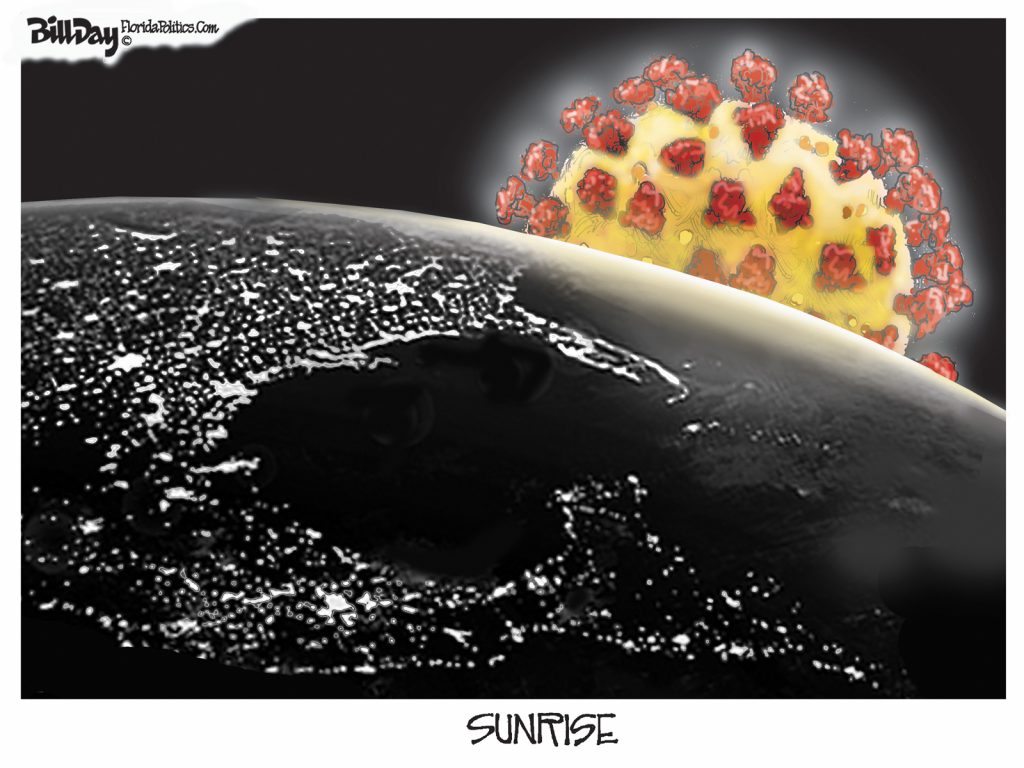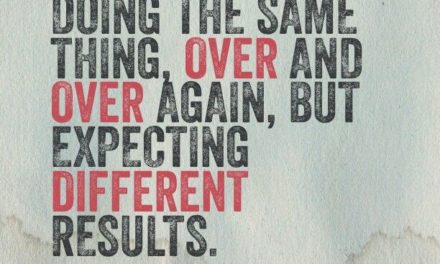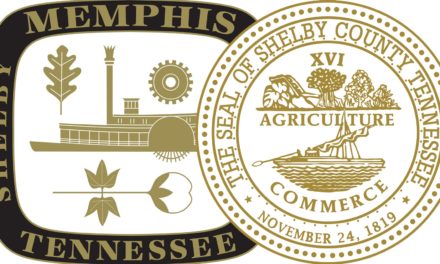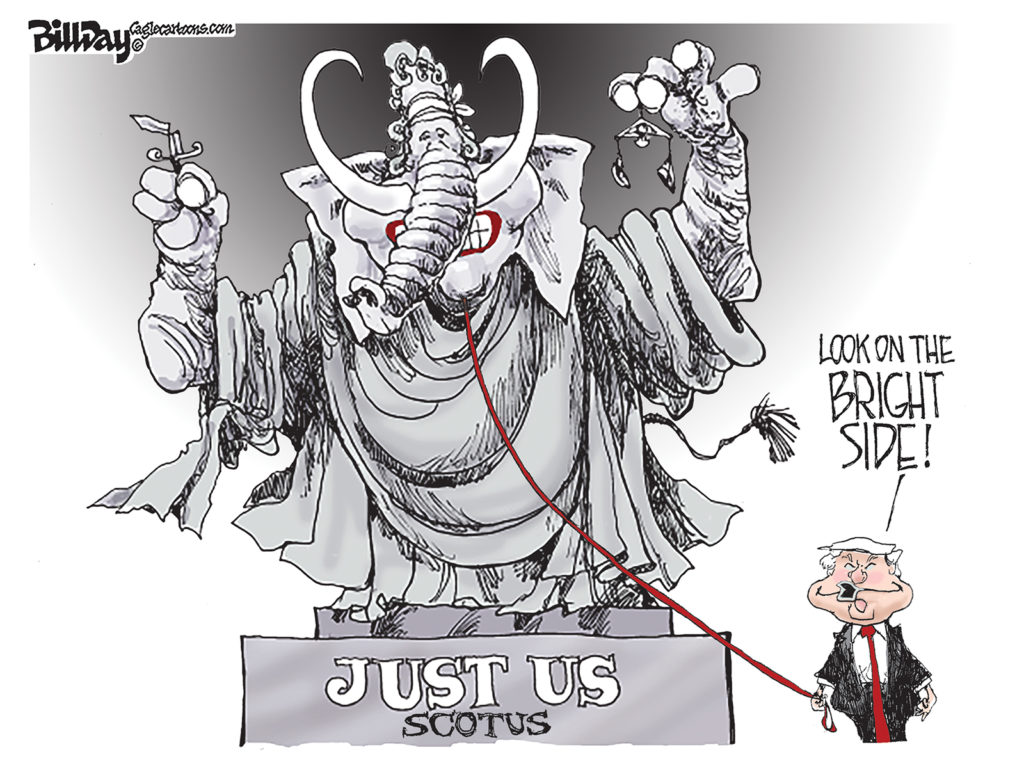The term “leader” is automatically applied to anyone who wins an election or appointed to a key civic position.
And yet, real leadership is not defined by elections or appointments. Rather they are shaped and proven in times of stress.
It is said that strongest steel is made under the greatest stress. That isn’t always the case with people. Some become leaders. Others become disappointments.
With the COVID-19 virus, it is unquestionably a time of great stress and the real leaders are made obvious.
It’s surprising how many of them make it so difficult. After all, in times of crisis, what the public wants – and needs – is factual information that is clear, consistent, unemotional, and credible.
The Governor
At the White House, it’s been denial, hype, wishful (if not magical) thinking, and outright misleading. In other words, just another day. However, this time, peoples’ lives are on the line and the roller coaster comments that contradict themselves from day to day undermine the need for accuracy and sound advice.
The doctors on the task force do their best to modulate and correct the misinformation and are willing to appear on channels other than Fox, and Vice-President Mike Pence brings a level-headed and somber, if sycophantic, calmness to the daily briefings.
Meanwhile, back here in Tennessee, Governor Bill Lee’s inaction and lack of decisiveness have been responsible for placing the state in the bottom 10 in the ranking of states’ effective responsiveness to the coronavirus. It’s yet more evidence that all the political rhetoric about how businessmen can better run government is so often just empty talking points.
Like the White House, our businessman-in-chief vacillated and, issued statements that failed to set out a firm, definitive position. More than anything, Mr. Lee has been reactive and taking positions long after others have done so in other states. He was slow to take action in calling for the shutdown of businesses, which felt for some like a delay so his East Tennessee base could profit from spring break crowds in places like Gatlinburg and Pigeon Forge.
Regardless of the reason, he’s been playing catch-up for weeks, and only now seems to be understanding the scope of the virus if we fail at containment and have to move to mitigation. Meanwhile, the Tennessee Department of Health is doing a perfunctory job of fulfilling its mission. Who can quote anything it has said and its website is weak on Tennessee-specific information on combating the virus.
Mayor Harris
Back here at home, the Shelby County Health Department has not inspired confidence, refusing to answer reporters’ question about specifics and its director even downplaying queries about the number of tests performed, saying the number isn’t important. And yet, the number of tests was a key metric for whether our community had the capacity to respond adequately. More to the point, City of Memphis is posting up-to-date metrics on the city website faster than the health department. The department also refuses to provide the kind of details that help the public to identify hot spots.
Perhaps, it was a reflection of a department doing its best while its boss, Shelby County Mayor Lee Harris, was in Ghana as part of an ill-timed Memphis In May International Festival delegation. As he has admitted, it was a poor decision.
While Ghana was not on the do-not-travel list at the time, that’s not the key determinant. The decision shouldn’t have been about Ghana. It should have been about Shelby County. That’s where the virus risk and cases were.
After all, if there was a diplomatic, economic, or social reason for him to be in Ghana, there was no reason that he had to be on the Memphis in May trip. He could have done that on his own anytime there was a justification for the visit.
The decision about Ghana was a judgement call, and that’s why he was a hit to his reputation. The decision to make the trip was poor judgement. As a practical matter, at the point that a government needs personal leadership that drives, inspires, and motivates his workers, it’s just not possible to do it from 6,000 miles away.
Also, it seemed that after he returned to Shelby County, he played catch-up with City of Memphis government. Generally, his actions were follow-ups to decisions made earlier by his counterpart in City Hall.
Mayor Strickland
The mayors of the municipalities were the last to declare civil emergencies, the closing of businesses, and mandate people to stay home. The slowness in taking action is often typical in those communities where mayors are cautious about anything that produces blowback from their upper middle class and socially media adept constituents. There, it’s more often the leadership approach of jumping on the lead horse in a stampede and claiming they started it.
Meanwhile, Memphis Mayor Jim Strickland has set the standard for our region, if not the state. His willingness to stake out strong positions has surprised many of his closest political supporters. Prior to this crisis, he’s not been known for decisiveness but for pushing off decisions with political downside and for possessing the ability of skilled politicians to shift responsibility for difficult actions to others.
However, the COVID-19 virus was a political reality check for the mayor and he has risen to the occasion. To his credit, he never wavered, pulling in health experts to advise him and presenting Memphis with a clear choice – whether to be South Korea or Italy. It was a smart way to characterize the choices for his city and to see if he can depress the bell curve for new cases.
This is clearly the defining moment for Mr. Strickland and it does more than ensure his place as a leader for Memphis. More to the point, it ensures him a chapter about leadership in the history of the city.
City Council
As for Memphis City Council, it’s most important job right now is to stay out the way and resist the temptation to elbow their way in. It’s a good time to remember the line between the branches of city government, and they’ve done it well so far.
That said, City Council approved $2 million for reduced MATA fares and Mid-South Food Bank at Tuesday’s virtual meeting. The MATA money is intended to be used by low-income riders for trips to doctors or food distribution. As usual, the devil is in the details, and it’s unclear exactly how Council will ensure that these are the purposes the reduced fares are used for.
More to the point, it feels most like political window dressing. While we support both organizations, it would have been interesting for the Council to take proposals for the $2 million and see what the highest and best uses of the money might be.
Perhaps, it would have been MATA and the Food Bank or both of them plus others with an increased appropriation. This kind of funding with preselected recipients – it’s also happened recently at the Shelby County Board of Commissioners – always feel like the result of successful lobbying more than a well thought out plan to confront the issues before them.
**
Join us at the Smart City Memphis Facebook page for daily articles, reports, and commentaries relevant to Memphis.







